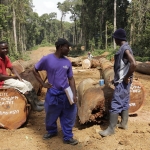Investors Urge Dow to Take Responsiblity for Bhopal
Letter Sent to Parker, Stavropoulos on Opening Day of Salomon Smith Barney Chemical Conference
NEW
YORK - A group of socially responsible investment funds, with assets
valued at $13 billion, are urging Dow Chemical Company to address ongoing
economic, health and environmental liabilities stemming from a poisonous
gas leak in Bhopal, India, which has killed and injured tens of thousands
of people to date. The investors, Trillium Asset Management, Domini
Social Investments, Calvert Group and others, sent a letter to Dow"s
CEO Michael Parker and board Chair William Stavropoulos, calling on
them to "continue dialogue with representatives of Bhopal citizens
groups, to take their claims seriously, and to work towards a mutually
acceptable solution."
The letter comes as the chemical industry gathers in New York for the two-day 13th
annual Salomon Smith Barney Chemical Conference, which will feature
a presentation by Parker. "I can't think of a more fitting
occasion to deliver this letter at a conference to discuss the
future of the chemical industry in the U.S.," said Steve Lippman
of Trillium Asset Management. "On the 18th anniversary
of arguably the worlds' largest industrial disaster, and at a time
when the public has never been more concerned about corporate responsibility,
Dow must address the ongoing problems of the citizens of Bhopal, where
even after all these years children born to survivors suffer debilitating
illnesses, and mothers exposed to contaminated drinking water carry
mercury in their breast milk."
In February 2001,
Dow Chemical purchased Union Carbide, the owners of the pesticide plant
in Bhopal in 1984, the year of the disaster. In January of this
year Dow settled asbestos lawsuits filed against Union Carbide in the
United States -- part of the liabilities it assumed as a result of the
Carbide buyout -- but it has so far refused to take any responsibility
for the pending liabilities connected to the Bhopal disaster, which
include a Class Action in New York and an ongoing criminal case in the
Indian courts. Following the asbestos litigation, Dow's stock fell
a dramatic 7 billion dollars due to investor fears of further
damages.
Publicly, Dow continues
to insist that Union Carbide had completely satisfied the Indian courts
and that no legal issues remain outstanding. "In fact", Gary
Cohen of the International Campaign for Justice in Bhopal said today, "a warrant for the arrest of Carbide's
ex-CEO Warren Anderson on charges of "culpable homicide" has
been out since 1992, charges reaffirmed by the Central Magistrates Court,
Bhopal, in August. And in October, India's Home Affairs Minister
and Foreign Affairs Minister confirmed that India will formally ask
for Anderson's extradition from the U.S." In what was a poor
month for the company, India's Central Bureau of Investigation
also announced that it would move to name Dow Chemical Accused #10 in
the Bhopal criminal case in place of Union Carbide. The Indian State
of Madhya Pradesh, of which Bhopal is the capital, followed this by
saying that it would ask the Indian Courts to compel Dow Chemical to
pay for the clean-up of the contamination polluting the soil and ground
water around the abandoned factory.
The International
Campaign for Justice in Bhopal has long been pressing Union Carbide
and now Dow to provide for adequate health care for gas survivors, and
to clean up the abandoned factory site. Two days ago, on the 18th
anniversary of the disaster, a procession through central Bombay delivered
contaminated soil and water from the site to Dow Chemical's headquarters
in India. The procession, led by more than 200 Bhopali women,
also delivered 4,000 brooms to the company alongside the message, "Dow,
Clean Up Your Mess."
Dow, whose $28 billion
in annual sales make it the world's largest chemical manufacturer,
has recently associated itself with a number of prominent "sustainable
development" initiatives, including the World Business Council
for Sustainable Development and the chemical industry's own "Responsible
Care" programme of self-regulation. Ironically, Responsible Care
-- developed through a partnership of Union Carbide and Dow in the immediate
aftermath of the Bhopal disaster "has, as one of its abiding principles,
the promise "to work with others to
resolve problems associated with past handling and disposal practices".
The poisonous gas
leak at the Bhopal pesticide factory in 1984 left 8,000 people dead
within three days. To date, more than 20,000 have died from ongoing
health problems associated with exposure to the lethal gases, and up
to 150,000 survivors are chronically ill. Much of the abandoned
factory remains, with tons of toxic chemicals left on site, leaching
into the soil and contaminating some of the communities' drinking
water. Survivors do not have adequate health care, and received
an average of USD$500 each from a settlement negotiated by the Indian
government with Union Carbide without the survivors' consent.
Contacts:
Steve Lippman, Trillium, (415) 392 4806;
Gary Cohen, ICJB, (617) 524-6018
Casey Harrell, Greenpeace, (202) 319-2497.>
To view the letter from Trillium, click here.
- 181 Food and Agriculture



